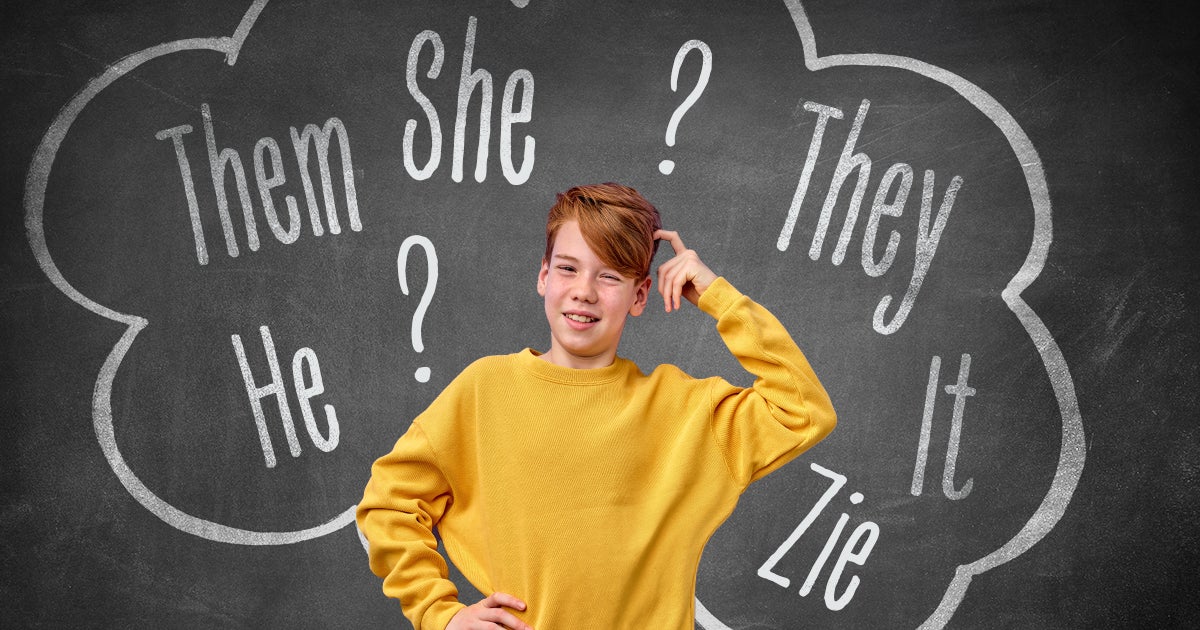
by Kayla Toney • 4 min read
Can the government force Christian, Jewish, Muslim, or Hindu students to use pronouns that conflict with biology and their sincere religious beliefs? The First Amendment says “No.”
Yet families from diverse faith backgrounds are deeply concerned that gender identity policies are violating their children’s religious exercise and free speech rights by forcing them to speak names and pronouns that conflict with biology and their deeply held religious beliefs.
First Liberty filed a friend-of-the-court brief in Parents Defending Education v. Olentangy Local School District on behalf of four nonprofit organizations: the Jewish Coalition for Religious Liberty, the Coalition for Jewish Values, the American Hindu Coalition, and the Islam and Religious Freedom Action Team. In this important First Amendment case, the U.S. Court of Appeals for the Sixth Circuit will decide whether a public school policy forcing children to speak names and pronouns that conflict with their consciences violates the Constitution.
Recently, the Eighth Circuit ruled in favor of religious parents and students in Parents Defending Education v. Linn Mar Community School District.
That court held that while Iowa’s new law addressed the parental rights concerns about hiding children’s gender transitions from their own parents, the school’s policy likely violated the First Amendment: “[T]he policy was impermissibly vague because it required discipline if a student refused ‘to respect a student’s gender identity,’ without clarifying what that meant.” Thus, a Muslim student who wears a hijab and follows the Quran’s teachings on gender could be singled out for discipline if she voices an objection to sharing a restroom with a biological male in violation of her religious beliefs.
The Eighth Circuit recognized that these problems posed a serious First Amendment concern. Thankfully, Iowa students in the Linn Mar district no longer have to fear punishment for speaking about their beliefs—or using pronouns that align with biology and their beliefs.
A California court recently vindicated similar First Amendment concerns in Mirabelli v. West. The Court held that the Escondido Union School District cannot hide gender identity decisions from parents because it causes a “trifecta of harm;” removing parental guidance from students, violating parental rights, and violating the First Amendment rights of religious teachers whom it forced to hide gender identity decisions from parents.
Yet Ohio students have no such protection. The Olentangy Local School District policy is even worse than Linn Mar’s because school officials have promised to discipline any student who “purposefully refer[s] to another student by using gendered language they know is contrary to the other student’s identity.” Thus, not only is the speech code impermissibly vague, but it discriminates based on content and viewpoint in a way that violates the First Amendment.
This affects people of all faiths. It means that Jewish students learning Torah commandments and principles at home will be compelled to use classmates’ preferred pronouns in violation of their religious beliefs about sex and gender, or face discipline for “harassment.” And Hindu families, who have no viable choice but to send their children to public school, will face additional pressure as their children are not able to express their beliefs at school but are instead required to affirm concepts about sex and gender that directly conflict with their beliefs.
In John and Jane Parents 1 v. Montgomery County Board of Education, where yet another school district has been hiding children’s gender transitions from their parents, the Fourth Circuit ruled that parents lacked standing to bring their claims because their own children had not actually begun gender transitions. This ruling brazenly ignored the constitutional problems with school districts keeping significant medical decisions secret from parents, as well as the First Amendment concerns that our friend-of-the-court brief raised on behalf of minority faith organizations.
Ultimately, the Supreme Court may need to address these issues to ensure that school districts follow the Constitution, and to ensure that every student and parent’s religious freedom and freedom of speech are protected, regardless of geographical location or faith background. And when the Court does weigh in on these important issues, Americans of diverse faiths will be present to voice their concerns. If students in Iowa and teachers in California have First Amendment rights worth protecting, students in Ohio and Maryland deserve no less.